
Established in 2001 as a ministry of Grace Covenant Church, Grace Covenant Academy in Cornelius, North Carolina, one of 844 private schools in the state serving more than 123,000 students, prides itself on excellence in Christian education, serving 3-year-olds through Grade 8.
Editor’s note: This commentary from John Hood, a board member at the John Locke Foundation, appeared Wednesday on carolinajournal.com.
The North Carolina General Assembly is about to make all children eligible for the state’s Opportunity Scholarship program. They won’t all receive the same amounts — poor and middle-income families will be eligible for vouchers in the range of $6,500 to $7,200 per student, while upper-income households will receive much less.
Nevertheless, both proponents and opponents are quite properly using the term “universal” to describe the policy, which will go into effect for the 2024-25 academic year.
School-choice advocates are ecstatic. Critics are despondent. Although my sympathies here are evident and longstanding, I think it would behoove both sides to temper their expectations a bit. There won’t be a gigantic exodus of children from district-run public schools in the fall of 2024.
For one thing, North Carolina’s current private schools don’t have the capacity to absorb such an enrollment boom. One of the best arguments for choice programs is their potential to foster entrepreneurship in education.
Just as the creation of charters gave educators, parents, and reformers the capacity to develop new models for public education, voucher expansion will give existing providers the capacity to add new grades and campuses while creating opportunities for new entrants to the K-12 space.
It can’t all happen in a year, though. It takes time to assemble teams, build or rent facilities, hire faculty, and develop content.
Furthermore, while some families will immediately take advantage of scholarships for which they’ll be newly eligible, many others will be intrigued but cautious. They’ll do their homework about what private options are already available, where new schools will open, and when they calculate the benefits of transferring their children will exceed the costs (which aren’t purely monetary, of course).
Still other families will have little interest in taking advantage of opportunity scholarships at all, either because they’re satisfied with the education their children are receiving in public schools — district or charter — or because they don’t like the private options available.
To continue reading, click here.
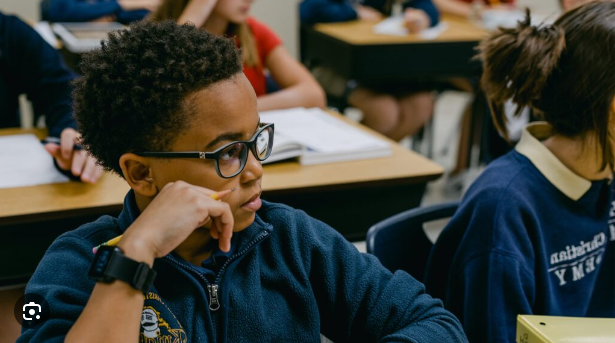
Hickory Christian Academy in Hickory, North Carolina, one of 844 private schools in the state serving more than 123,000 students, aims to equip children today to be God’s leaders tomorrow.
Editor’s note: This article appeared Wednesday on North Carolina’s WRAL.com.
The North Carolina House of Representatives moved to expand private school voucher eligibility to families all of incomes and spend nearly $400 million more annually on the vouchers in years to come — one of the biggest boosts in education dollars in years, an effort that is fueling an intense debate over how schools are funded.
After more than two hours of debate, the House passe House Bill 823 by a 65-to-45 vote Wednesday. It now heads to the Senate for review, where an identical bill has already passed the Senate Education/Higher Education committee.
House Bill 823 would make vouchers to attend private schools one of the state’s biggest education line items.
Supporters argued the expansion would give more families more opportunities to choose where their children go to school, especially for children with special needs. Opponents argued the bill would divest from underfunded public schools and increase investment in a private landscape in which not all students are accepted.
An Office of State Budget and Management analysis released last week estimated public schools would lose thousands of students to the private schools, costing them more than $200 million annually by the 2026-27 school year, before the program expands to well more than half a billion dollars during the 2032-33 school year.
Private school vouchers, called Opportunity Scholarships in North Carolina, are checks written by the state on behalf of qualifying families who apply for the voucher, to a private school. The child must apply to the private school and be accepted to qualify.
“We don’t need to bleed off money to send to the private sector,” said Rep. Abe Jones, D-Wake. “We need to strengthen the public schools where most people’s kids are going to still be going.”
Bill sponsor Rep. Tricia Cotham, R-Mecklenberg, framed the issue from a different angle. She said some students aren’t engaged in school and need to be.
“Maybe a kid says they hate school” Cotham said. “It’s just not the place, maybe the school is too large, maybe it’s the type of curriculum, maybe they have dyslexia and need another location for them. So this would give families, parents, the opportunity because they know their child the best to say where their child should go to school.”
To continue reading, click here.
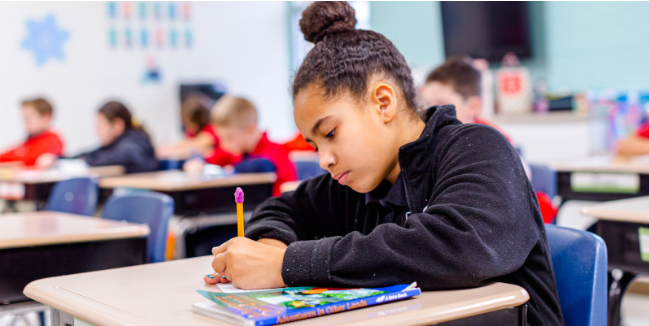
Tabernacle Christian School in Hickory, North Carolina, one of 844 private schools in the state serving more than 13,000 students, teaches all subjects from a biblical worldview and encourages social development through the teaching of good manners, high moral standards, respect for parents and authority, and patriotism. All teachers at the K-12 school are Christians who serve at their local church.
Editor’s note: This article appeared Friday on the centersquare.com.
With an estimated 77,000 on charter school waiting lists, lawmakers in the North Carolina House of Representatives on Tuesday will consider several bills designed to open up school choice for families.
The House Education Committee will hear three bills that could provide more school options for North Carolina families: one to expand Opportunity Scholarships, another to streamline charter school approvals, and a third to allow open enrollment in public schools.
House Bill 823, known as Choose Your School, Choose Your Future, is sponsored by top House Republicans including Speaker Tim Moore, R-Cleveland, to expand Opportunity Scholarships to all students through a tier-based system based on income.
The program is currently restricted to low- and moderate-income families to cover private school tuition and other educational expenses. Parents for Educational Freedom President Mike Long contends the expansion would mark “an incredible step toward funding students over systems in North Carolina,” while the state’s teachers association is lobbying against the bill.
The program currently helps more than 25,000 students attend 544 private schools.
The committee will also review House Bill 618, to create a Charter School Review Board to take over responsibility for approving, amending, renewing and terminating charter schools. It would reshuffle the authority of the State Board of Education; the legislation is aimed at streamlining the process, though the state board would retain oversight over the review board.
To continue reading, click here.

Renaissance Classical Christian Academy in Fayetteville, North Carolina, is one of 845 private schools in the state serving more than 123,000 students. Renaissance Classical Christian’s curriculum, known as the Trivium, is known for helping children learn and grow with measurable results comprised of three phases: the grammar stage, teaching young children knowledge; the logic stage, teaching teens understanding; and the rhetoric stage, teaching young adults wisdom.
Editor’s note: This article appeared Monday on carolinajournal.com.
Republicans have introduced a bill this session that would create education savings accounts in North Carolina. Here is a quick primer on what ESAs are, what other states are doing on this issue, and what could be on tap here in the Tar Heel State.
What are ESAs?
Education savings accounts are government-funded accounts controlled by parents that can be used for approved education expenses. ESAs shouldn’t be confused with a Coverdale ESA or a 529 account, both of which allow parents to fund education accounts using their own after-tax dollars and allow the investment to grow for tax-free withdrawals if the funds are used to pay for approved education expenses.
ESAs are one of the most ambitious forms of school choice because they exemplify the belief that education dollars should follow the child, not just fund a system.
What other states are doing
Six states have passed a universal ESA to date — Arizona, Arkansas, Iowa, Utah, West Virginia, and Florida. Here is more detail on the specifics of each ESA plan.
Arizona: This state’s Empowerment Scholarship Accounts are available to all students and are valued at around $7,000 each. Arizona became the first state to pass a universal ESA in 2022.
Arkansas: The Children’s Education Freedom Accounts were signed into law in March. The accounts will be phased in over two years until eventually becoming universally available to all students. The value of each account is based on 90% of the prior fiscal year’s per pupil allotment, which for the most recent year is around $6,600.
Iowa: This state’s ESAs became a reality in January and will fully kick in for all students by the 2025-2026 school year. The value is tied to the state’s per pupil allotment for public school students — around $7,400 for the current fiscal year.
Utah: The Fits All Scholarship account are valued around $8,000 per year. Although they are available to all students, priority is given to families to lower-income families before wealthier families have access to an account.
West Virginia: The Hope Scholarship is worth less than what other states offer — around $4,300 for the 2022-2023 school year.
Florida: The Sunshine State became the most recent state to enact a universal ESA after Gov. Ron DeSantis signed a bill into law in late March. Each ESA is worth around $8,700 a year, making Florida not only the largest state to enact an ESA, but also the most generous in the amount provided.
Several other states are either poised to pass ESAs or are on the cusp of expanding special-needs ESAs to all students.
To continue reading, click here.
 Recently, reimaginED executive editor Matt Ladner noted the 10th anniversary of education savings accounts, which debuted in Arizona in the form of the Empowerment Scholarship Account. In the past decade, research has demonstrated a refreshing truth about the accounts.
Recently, reimaginED executive editor Matt Ladner noted the 10th anniversary of education savings accounts, which debuted in Arizona in the form of the Empowerment Scholarship Account. In the past decade, research has demonstrated a refreshing truth about the accounts.
In an age of fake news, they have proved authentic, empowering parents to customize their child’s education, and families are, in fact, doing exactly that.
Data from North Carolina’s two education savings accounts programs find that a larger share of families are using their child’s account to purchase more than one education product or service than those who are only paying for one item, such as private school tuition.
Sixty-four percent of account holders used an account to customize their child’s learning experience in North Carolina’s accounts’ first two years — approximately double the share of Arizona families that customized a student’s experience in the first two years of account availability in that state.
K-12 private school scholarships and vouchers have offered students around the country the opportunity to attend a school of their choice for more than 20 years, bringing hope to children assigned to failing schools. During this period, though, teacher unions and other interest groups have filed lawsuits to force children back into assigned schools, delaying and in some cases erasing these options.
Education savings accounts are not vouchers, and courts have recognized the accounts’ distinguishing feature of allowing parents to choose how and where their children learn, making unions’ charges that the accounts violate state constitutions inaccurate.
(Recent court decisions in favor of scholarships in cases such as Espinoza v. Montana Department of Revenue also have given parents hope against union lawsuits trying to crush student learning options.)
Thus, the accounts’ flexible provisions and research findings that parents are using these options are significant – both because they allow parents to design a learning experience that meets a child’s needs and because the accounts’ versatility makes them more likely to withstand legal challenges.
North Carolina’s accounts have notable similarities and differences with other account programs, such as the education savings accounts in Florida and Arizona. As with the account laws in other states (Arizona, Florida, Mississippi, Tennessee, and now Indiana, New Hampshire, and West Virginia), North Carolina state officials deposit a portion of a child’s funds from the state education formula into a private account that parents use to buy education products and services for their children.
Similar to Florida’s accounts, North Carolina’s accounts are available to certain children with special needs. Arizona’s accounts, the oldest accounts in the U.S., are available to children assigned to failing schools, children living on tribal lands, adopted children, as well as children with special needs and other students from disadvantaged backgrounds.
Another important similarity that North Carolina’s accounts share with both these state account options is that state officials contracted with private entities to oversee parent transactions. In Florida, most account operations are overseen by private-school scholarship organizations, while in Arizona, lawmakers have hired a payment-processing firm that works in other sectors of public education called ClassWallet.
ClassWallet also is managing much of the account activity in North Carolina, including parent purchases.
State departments of education are not equipped to manage individual family transactions, and state education agencies such as Arizona’s often restricted parent options, resulting in groups such as the Goldwater Institute stepping in to defend families’ rights under the law.
Outsourcing account operations from the inception of North Carolina’s education savings accounts programs saved Tar Heel families the frustration of discovering just how bureaucratic state education agencies can be.
A unique feature of North Carolina’s accounts is that families can combine two private scholarship options, Disabilities Grants and Opportunity Scholarships, with their child’s education savings account. My report for the John Locke Foundation finds that most — 225 out of 277 account holders in 2018-2019, and 216 out of 304 account holders in 2019-2020 — used a Disabilities Grant (a voucher worth up to $8,000 for private school tuition, textbooks, and other qualified items) and an account.
Even with access to both the Disabilities Grant and the account, though, 138 participants still used an account to purchase more than one education item or service.
This research on North Carolina’s accounts offers families and policymakers a glimpse at the future of learning. In just the last year, lawmakers in Indiana, Kentucky, Missouri, New Hampshire and West Virginia have enacted new account laws.
How will parents use the accounts, legislators may ask? If data are any guide, they will use them exactly as intended: to meet the unique needs of their children.
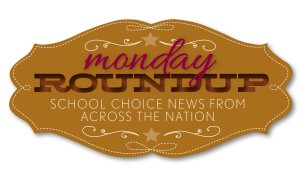 Alabama: The Institute for Justice, a national civil rights law firm, says vouchers are constitutional in the state (Al.com).
Alabama: The Institute for Justice, a national civil rights law firm, says vouchers are constitutional in the state (Al.com).
Alaska: School choice opponents voice their concerns at a public hearing over a constitutional amendment to allow public funding of private schools (Anchorage Daily News, Nonprofit Quarterly). The proposed constitutional change passes the House Education Committee but the amendment faces a tough road ahead (Anchorage Daily News). There are 27 charter schools in the state with no cap on how many schools may operate (Alaska Dispatch).
Arizona: The state has many school choice programs (Camp Verde Bugle). A state court rules the Department of Education cannot recoup $5.9 million in over-payments to charter schools due to a change in teacher performance pay because it didn't notify the schools of the rule change (Arizona Republic). Charter school operators plan to open 25 new charter schools in Phoenix (Arizona Republic).
California: Parent trigger elicits emotions from parents on both sides (Hechinger Report). The superintendent of LA Unified says every "student has the right to a choice of a highly effective school" (Reason Magazine). San Diego school board members are attempting to exclude some charter schools from receiving bond money approved by city voters (Fox 5 San Diego).
D.C.: A new study reveals area charter schools are being shortchanged on student funding compared with district schools (Washington Post).
Florida: School choice is growing by leaps and bounds (Sunshine State News). The Palm Beach Post editorial board says giving students public school choice could reduce the disadvantages faced by low-income students. After 17 years as president and CEO of Florida Virtual School, Julie Young announces her retirement (redefinED, Orlando Business Journal). Gov. Rick Scott proposes allowing charter schools access to construction funds if they serve students within attendance zones of low-performing public schools (Tallahassee Democrat).
Georgia: A lawmaker wishes to expand the tax credit scholarship program with a $100 million cap (GPB News).
Illinois: Nobel charter schools name thee schools after donors who give $1 million or more, but the donors do not decide curriculum or which teachers to hire (Chicago Sun Times).
Indiana: The Lafayette Journal & Courier editorial board argues that private schools should continue to take the state test in order to create a fair comparison with public schools. Since vouchers can be worth no more than 90 percent of per-pupil state funding to local school districts, vouchers save the state money (Indianapolis Daily Star). Five voucher schools in the state say they teach intelligent design or creationism (Journal-Gazette). The Star Press editorial board worries that allowing students to use vouchers without ever attending public school creates two classes of education. (more…)
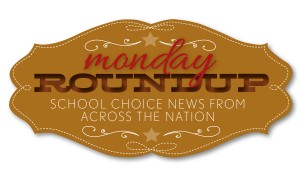 Alabama: Applications for the state's new tax credit scholarship program are now open (Alabama Opportunity Scholarship Fund, WTVY)
Alabama: Applications for the state's new tax credit scholarship program are now open (Alabama Opportunity Scholarship Fund, WTVY)
Arizona: Three charter schools will be shut down for poor performance (Arizona Business Journal).
California: The L.A. metro area has the largest number of students attending charter schools in the nation (LA School Report). Charter school growth booms in L.A. and San Diego (San Diego Union Tribune).
Georgia: NPR asks "what is school choice?" (WABE). Hall County ranks No. 1 in the nation for charter school enrollment growth (Access North Georgia). Charter school enrollment grows in the state as more schools request permission to convert to charters (Atlanta Journal Constitution).
Florida: If Catholic schools were a district, they'd be the 9th largest in the state (redefinED). 80,000 students attend charter schools in Miami-Dade, making it the 6th largest (numerically) metro charter area in the nation (Miami Herald). A virtual charter school is approved to set up shop in Pinellas County (Tampa Bay Tribune). Across the bay in Hillsborough, a school board votes down a charter school request by MacDill Air Force Base (redefinED). The number of students using "opportunity scholarships" to leave poor-performing schools doubles in Duval County (Florida Times Union). Florida Virtual School offers students flexibility (Townhall.com).
Indiana: Gov. Mike Pence wants vouchers for pre-k students (Indianapolis Star, Greenfield Reporter). Pence thinks charter school networks should be allowed to operate more like school districts (Courier-Journal). Public school districts will have to hold lotteries for public school choice if demand exceeds supply (Education Week). Gary ranks 5th in the nation for charter school enrollment (Post Tribune).
Louisiana: The Louisiana Association of Business and Industry is the most influential organization on education reform, according to a Brookings Institute study (Times Picayune). New Orleans has the largest percentage of students attending charter schools of any city in the nation...for 8 years in a row (Times Picayune). (more…)
 Florida: State education commissioner Gerard Robinson, a former president of the Black Alliance for Educational Options, resigns amidst tumult over the state's accountability system (Tampa Bay Times). Robinson says the move was for family reasons (Tampa Bay Times). Critics of Florida's education reforms see an opportunity to change direction (News Service of Florida).
Florida: State education commissioner Gerard Robinson, a former president of the Black Alliance for Educational Options, resigns amidst tumult over the state's accountability system (Tampa Bay Times). Robinson says the move was for family reasons (Tampa Bay Times). Critics of Florida's education reforms see an opportunity to change direction (News Service of Florida).
Louisiana: There are far more applicants than seats available in Louisiana's new voucher program, leaving thousands of parents and students out of luck. (New Orleans Times-Picayune)
Wisconsin: Private school vouchers are a central issue in a Democratic primary for a state assembly seat in Milwaukee. (Milwaukee Journal Sentinel)
Maine: On the birthday of school choice champion Milton Friedman, choice proponents in Maine promise another legislative push for an expansion of learning options. (Bangor Daily News)
Mississippi: Gov. Phil Bryant pushes for charter schools as part of his education reform package (Jackson Clarion Ledger). Lt. Gov. Tate Reeves also says he'll continue pushing for legislation to boost charter schools despite the failure of a charter school proposal during the last session (Memphis Commercial Appeal).
North Carolina: The state board of education is set to consider allowing 25 new charter schools across 13 counties next year. (Associated Press)
South Carolina: Parents and teachers talk up the positives of a new charter school in the Myrtle Beach area. (Myrtle Beach Online)
Nevada: A state lawmaker proposes a voucher bill that would give parents half of the state's per-student funding to send their children to private schools. (Las Vegas Review Journal)
Editor's note: For those new to redefinED, "blog stars" is our occasional compilation of good stuff from other ed blogs (with a newspaper op-ed thrown in now and then, too).
 Huffington Post: In search of the elusive, reform-minded school board member
Huffington Post: In search of the elusive, reform-minded school board member
What most people don't understand is that managing failure is just as hard as managing success. And this is, I believe, part of the reason school boards don't improve schools. Stability and coherence are watchwords in both the high-achieving and low-achieving systems. Administrators want to keep their staff happy and their board at arm's length. In both successful and failing districts, "micromanaging" by the school board is considered a no-no. I recall a woman addressing our board not along ago. "We're not supposed to rock the boat," she said. "But the trouble is that the boat has tipped over and we're lashed to our seats." Rocking the boat is exactly what must be done to effect change -- change, one hopes, that leads to better student outcomes.
I spent most of the last 10 years, on and off the board, pushing for a rigorous curriculum, stopping the disproportionate disciplining of African-American students, and complaining about the over-identification of special ed students (almost a quarter of our student body). But, for the most part, no matter what I proposed -- a new bus route, a paint job for the flag pole, or a curriculum -- I was mostly ignored. In order to get a pile of old lumber and rusty nails removed from the edge of a playground I had to threaten to dump it in the superintendent's driveway! Full post here.
Dropout Nation: The NAACP should listen to Romney (and Obama) on school choice
By embracing an education traditionalist thinking and Zip Code Education, the NAACP is aiding and abetting the damage to black children that it is supposed to defend. By taking money from NEA and AFT affiliates (including the $16,200 picked up by its New York branch from the AFT’s Big Apple unit during the union’s 2010-2011 fiscal year), the association is also betraying its obligations as a civil rights group to oppose policies that promote the same denials of equal educational opportunities against which it supposedly fights. In the process, the NAACP refuses to be a much-needed public policy voice and activist on behalf of transforming a failed system, alienating the very school reformers and black families (especially in urban communities) who are looking to build schools that black children (and all kids) deserve. And by adhering to the thinking of aging members who have a vested interest in maintaining failed ideas about how schools should serve black children, the NAACP has also lost opportunities to gain support from a new generation of African-Americans who realize that education is the most-important key to achieving social and economic equality.
When both Romney and Obama share common cause on systemic reform and on expanding choice, it is clear that the NAACP is on the wrong side of history. Now it is time for it to do the right thing. Full post here. (more…)
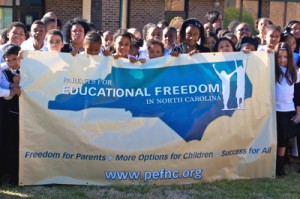 An attempt to bring a tax credit scholarship to low-income children in North Carolina succumbed to a short session and broader tax and education politics as the General Assembly adjourned on Tuesday. But the effort is worth noting in part because of the group pushing it.
An attempt to bring a tax credit scholarship to low-income children in North Carolina succumbed to a short session and broader tax and education politics as the General Assembly adjourned on Tuesday. But the effort is worth noting in part because of the group pushing it.
Parents for Educational Freedom in North Carolina is a diverse, progressive organization with a membership of 60,000 and is led by a home-grown talent, Darrell Allison, who has a legal and civic mind and has worked in the White House and the U.S. Department of Justice. Allison and his team bring both a zeal to help struggling low-income children and a concern for getting the policy right and making the program accountable. (Disclosure to readers: I worked with PEFNC in preparations for the bill.)
The bill that ultimately was filed, HB 1104, fell short of the type of academic testing requirements the group was seeking. But overall the language kept faith with the 1,200 people who rallied at the Capitol in May, the 4,000 calls and emails that urged lawmakers to act, and the Democrats who signed on as co-sponsors. Importantly, at a time when some tax credit scholarship programs are coming under scrutiny for laws that lack genuine accountability and transparency, Allison and his team were trying to make sure their program had plenty of both.
The “Equal Opportunity Scholarship” was to be funded by contributions from companies that in turn received a dollar-for-dollar tax credit, and the scholarships were to be restricted to students with genuine economic disadvantage – those with household incomes not exceeding 225 percent of poverty. Scholarship organizations could not be tied to any school and could not allow donors to designate that their money go toward any particular student or school. The scholarship itself was to be $4,000, or just under half the amount the state and local governments spend on each public school student. Early fiscal evaluations showed that some versions of the bill saved money even when factoring only the state portion. (more…)